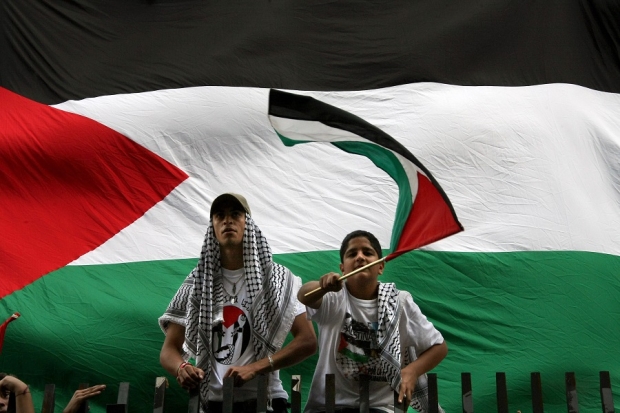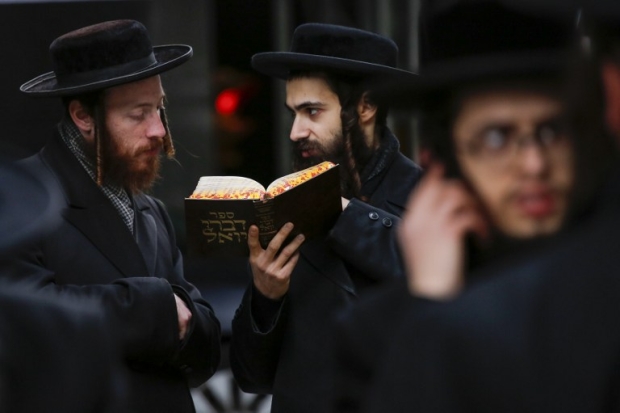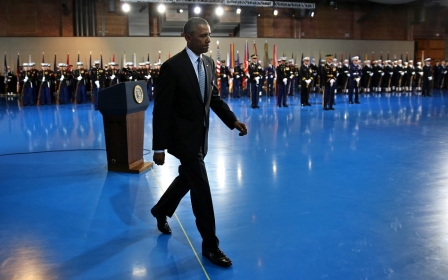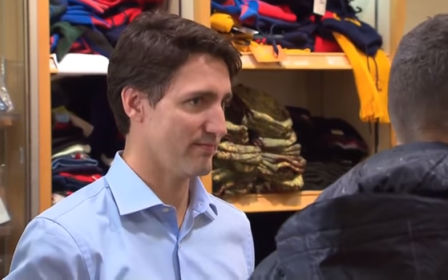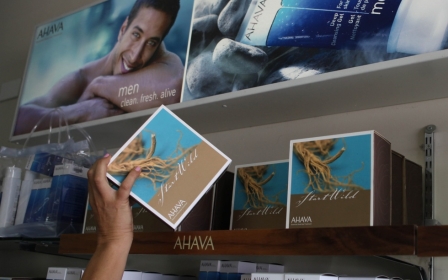'We are all Panamanian': Panama's Muslims and Jews live in peace
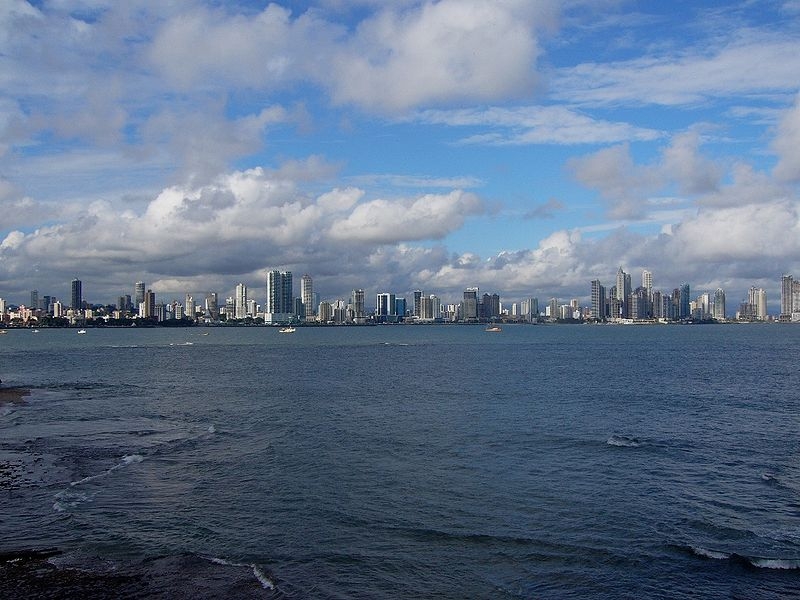
PANAMA CITY - Down a side street in the Villa Lilla neighbourhood, a close community of 15 Muslims have gathered together for noon prayers. Dr Mohamed Ali greets worshippers as they enter the one-room mosque.
“The imam is sick today, so I am filling in,” he said. “Please feel welcome.”
Originally from Egypt, Ali arrived in Panama City 15 years ago. He laughs when asked if he has faced any discrimination in Panama, after moving around the United States for 10 years before settling in the city.
“Panamanian society is very friendly and the people accept others who are different from them,” he told Middle East Eye.
'Panamanian society is very friendly and the people accept others who are different from them'
For generations, Muslims have been a part of the mosaic of Panamanian and Latin American culture. Followers of Islam began arriving on the continent from the Iberian peninsula under Spanish and Portuguese colonial rule, according to the Islamic cultural institute of Colón.
Many of them are descendants of people who migrated from the Middle East and India to work on the Panama Canal. Thousands of Muslims call Panama City home, while others from the Muslim community live in the coastal city of Colón.
The majority of people from the Middle East have migrated to Latin America over the past 150 years, many from Lebanon, Palestine and Syria.
When asked if there is a division between followers of the Sunni and Shia branches of Islam, Ali laughs at the “odd question”.
“As business people interested in commerce and trade, most of us believe in uniting. We don’t see this division as healthy,” he said. “These sectarian divisions are a reflection of ignorance.”
Peaceful coexistence
Despite the decades-long conflict between Israel and Palestine, Muslim-Jewish relations in Panama seem to be immune to Middle East politics.
Religious leaders on both sides are eager to preserve this peace, saying they consider each other friends and work together towards the common good. Imams and rabbis actively collaborate to promote inter-religious dialogue as part of the Inter-Religious Committee of Panama (COIPA), an initiative that includes other faiths such as Christianity and Hinduism.
There are approximately 24,000 Muslims living in Panama out of a total population of 3.7 million, and between 12,000 and 14,000 Jews in the country.
Rabbi Gustavo Kraselnik, who has been in Panama since 2002, agreed with Ali that the partnership between the Muslims and Jews in Panama is reinforced by the groups’ close business ties, particularly in the Colón Free Trade Zone, where goods are exported to Latin America and the Caribbean.
As he sat in his office inside the country's oldest synagogue, which was founded in 1876 by Spanish and Portuguese Jewish settlers, in the Costa del Este neighbourhood of Panama City. He said:
"There are many Jewish and Muslim professionals who have founded companies together. How can you hate your business partner?"
'There are many Jewish and Muslim professionals who have founded companies together. How can you hate your business partner?'
Kraselnik has been a rabbi since 1996 and previously served in El Salvador as the head of their Jewish community.
Due to Panama's strategic location between North and South America, it has been a hub of import-export industries, as between 13,000 and 14,000 vessels use the Panama Canal every year.
As a tourism operator specialising in helping Muslim visitors to Panama, Ali says many of his international customers are business people working with partners in the Colón Free Trade Zone, which is the second largest free trade zone in the world after Hong Kong.
Ali sees this search for common ground among different communities as an integral part of the culture.
“We have no reason to hate anyone based on their religion or beliefs,” Ali said. “We are all part of humanity, so it doesn’t make sense to divide us.”
'We are all part of humanity, so it doesn’t make sense to divide us'
Most importantly, members of both faiths have made a concerted effort to not import political conflict from the Middle East, especially concerning Israel and Palestine. This contentious topic has divided Jewish and Muslim communities around the world, such as France, home to the largest populations from both religions in Europe.
“We stay away from foreign political conflicts that could affect our positive relationship,” said Kraselnik. “Everyone has the right to their opinions, but we understand that we’re not going to resolve the Middle East’s issues here, so it is useless to discuss it within the Panamanian context.”
Israel-Palestine dichotomy
Politically, Panama has forged closer political ties with Israel than most of its neighbours.
It was one of nine countries who voted against granting Palestine non-member observer status at the United Nations in 2012, following the lead of the United States.
“The Muslim community believes in the Panamanian system and even if we don’t always agree [with the government’s policies], we accept them. We are simply open-minded in that aspect,” Ali said.
The country has also had two Jewish presidents: Max Delvalle Levy-Maduro, who served as his country’s leader briefly in 1967, and his nephew, Eric Arturo Delvalle, who was in office from 1985 to 1988.
“Panama has always shown excellent relations with Israel and the Jewish community,” Rabbi Kraselnik said.
In a region where relations with Israel have ebbed and flowed, Dr Raanan Rein, an expert on Latin America’s Jewish community and current vice president at Tel Aviv University, said that the country’s stance on the Israeli-Palestinian conflict is directly linked to their connection with the United States.
“On the whole, Israel’s relations with Latin America are very good, but much depends on the way Israeli-American relations are going,” he explained. “Some countries, like Argentina or Panama, look towards Washington and follow the American policy. We’ve also had major difficulties under populist regimes like Venezuela, Ecuador and Bolivia.”
For example, Bolivian President Evo Morales called Israel a “terrorist state” in 2015 and renounced visa-free travel for Israeli citizens to the country. After the 2009 war in Gaza, Hugo Chavez of Venezuela cut ties with Israel in protest.
For more than a century, the United States - particularly its military - has had a robust presence in Panama. From 1903 to 1979, the Panama Canal Zone was considered unincorporated US territory. Control of the canal was turned over to Panama on 31 December, 1999.
The Jewish community
“The Jewish community is very diverse and we each try to preserve our traditions and culture depending on where we’re from,” Rabbi Kraselnik said. “We are fully integrated and contribute to Panamanian society.”
The most significant wave of immigration took place from the 19th century until the eve of World War II, when hundreds of thousands of Jews left Eastern Europe for Latin America as part of the mass emigration from Europe to the Americas, where 40 million people moved between 1850 and 1913.
Later in the 1920s, another wave of migration began, when Jews from the Middle East, particularly Syria, and Ashkenazi Jews travelled from Eastern Europe to Panama, according to Kraselnik.
Rabbi Kraselnik says he has not seen the same trend in Panama, with the exception of social media networks where users can spout anti-Semitic rhetoric in relative anonymity.
“I don’t think there’s really any anti-Semitism in Panama,” he explained. “We have seen migration from other Latin American countries because of economic and political instability, not because of anti-Semitism.”
From a regional Latin American perspective, there has been a Jewish presence in Latin America since the Spanish colonial period, a pattern similar to the Muslim community.
Panama’s Jewish and Muslim communities are saying they have set an example of how people from both religions can live in relative peace.
'We are all Panamanian'
Back at the Kol Shearith Israel synagogue, Rabbi Kraselnik says that while Jewish identity plays a prominent role, most people identify as Panamanian first.
“Our community is completely integrated, so while we always have our Jewish side, we are first and foremost part of Panamanian society.”
Dr John Tofik Karam, an associate professor at the University of Illinois, said that unlike American or European societies that tend to exclude or ignore the other, different groups in Latin America are incorporated into a broader national and regional identity.
“The difference in Jewish-Christian-Muslim relations in Latin America has nothing, or very little, to do with Jews, Christians or Muslims, and everything to do with Latin American national ideologies,” Karam said.
Ali believes countries around the world can be inspired by Panama’s example, something he hopes will bring lasting peace.
“Everyone needs to learn to accept everyone regardless of their religion, especially in the Middle East. We need to be more like Panama,” he said.
“Because, here, in the end, we are all Panamanians," he added.
New MEE newsletter: Jerusalem Dispatch
Sign up to get the latest insights and analysis on Israel-Palestine, alongside Turkey Unpacked and other MEE newsletters
Middle East Eye delivers independent and unrivalled coverage and analysis of the Middle East, North Africa and beyond. To learn more about republishing this content and the associated fees, please fill out this form. More about MEE can be found here.


